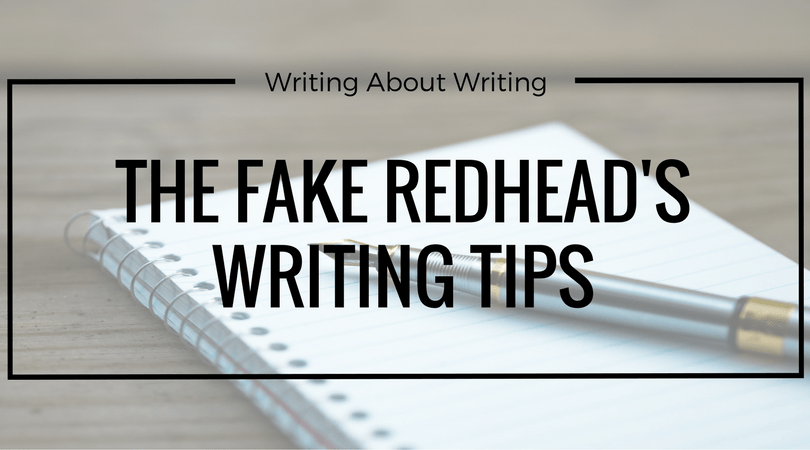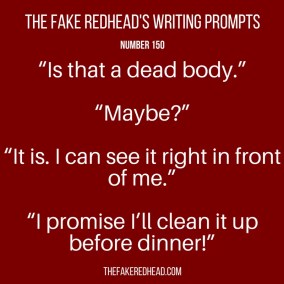Writing Tips | Find Your Next Favorite Book | Prompt Library | Shop The eBooks
Sharing Your Work Doesn’t Have To Be Scary
I’m going to talk about a bunch of different things today, including taking a small dive into fandom. If you’re not so familiar with that, just bear with me. I have a point, I promise. This post also features a story about my sixth-grade science teacher, aka the first person to realize that 11-year-old Kathryn needed glasses.
Aren’t I just full of stories today?
So, here you are. You’ve spent for-freaking-ever writing your story, it’s awesome, you’re super proud of it, and now it’s time to share it with the world.
Daunting, right?
Well here’s the thing: sure, it is daunting, but you can’t let it drive you crazy. Far and away, no matter what you do and what you write, you are going to hear more positive things about your work than you will the negative.
But yes, you WILL also hear negative things. That’s just a fact of life.
You have to remember that you wrote your story for you, and while you will undoubtedly find others who will also enjoy your work, it’s NOT going to be for everyone. It’s just not.
And even though you can make your work as appealing to as many audiences as possible, you’re still going to get people that just aren’t interested. There are people out there who don’t love Harry Potter, but you don’t see J.K. Rowling crying into her diamond-encrusted iPhone over it.
Or, you know, the Divergent books. Not my cup of tea. It’s the cup of tea for a LOT of people (hence why it ended up being a movie series, though let’s not talk about how that ended, because that’s another story entirely and has very little to being an author and sharing your work.), but it’s just not up my alley.
Hmm, how many metaphors can I make about liking things in this post? Hint: probably a lot.
So yes, sharing your work can be scary, but click the Continue Reading button for the two most important things that you should NOT do when you share your work. These things can almost feel like the instinctually CORRECT response, but they’re really not and it won’t serve your overall confidence in the long run.
1 Highlight The Negatives
When I was in the sixth grade, somewhere between not realizing that I needed glasses and actually getting them, our science teacher assigned us a … science project.
I don’t remember much of the assignment as a whole, but I do remember that my project involved an RC car, a shoe box, and a TON OF TAPE. Like, a significantly-more-than-advisable amount of tape.
Anyway, when presenting my assignment (which was also NOT fun because I was NOT a good public speaker at the time. I was eleven, no one’s a good public speaker when they’re eleven), I distinctly remember sitting on top of the table in the front of the classroom (I have a weird relationship with chairs), and part of my explanation of my project was highlighting my SUPER TERRIBLE TAPE JOB.
And while yes, it was terrible, my science teacher made a GREAT point:
Don’t highlight the negatives about your work.
There’s absolutely NO reason to. It probably impacted my grade that I did (but then again, even at age eleven, I knew I was a better writer than a scientist), but most people don’t care about the bad things, and probably aren’t going to bring them up.
But if YOU bring them up first, then it’s all fair game.
Even if you don’t do it, you’re still going to face criticism, but having a person validate something that YOU highlight will only make you feel worse about your work and make you less inclined to share more of your work in the future.
And as a side note, if there IS something in your work that you don’t feel confident about, then maybe you should go back in and address that scene or section or plot line. Whatever it is.
If you’re sharing your work to get help with that, then sure, you can highlight it, but not in the sense of, “Hey, so just be warned, this part sucks.” Instead, you can say something like, “Hey, what do you think I can make this part BETTER?”
It’s all about the phrasing, which we as writers know is SUPER important.
2 Trash Your Work When You Post It
This is similar to the previous tip, but this is also where I take the nose-dive into fandom to explain my point.
When you read the following comments—which are all paraphrases of things I’ve read throughout my many years in fandom—think about if you would be inclined to read further into the story or work if it’s introduced by something like this:
“I’m bad at summaries, but read anyway.”
“Summary sux, plz read.”
“Unbeta’d.”
“I don’t know why I wrote this.”
“Sorry if it sucks.”
Seriously, would you want to read ANYTHING that’s preceded by something like that?
I know that, for me, the answer is a strong no.
It’s actually comments like this that trained me to be able to pick out whether or not I’m going to like a story within like, the first sentence. Sometimes the first word. I’m SUPER picky.
But that’s unrelated.
Anyway.
It’s an instinct to kind of want to trash your work when you put it out there in the world, so that, like I said above, when someone agrees with you, you feel validated.
But it doesn’t serve you at all.
In fact, part of the writing group that I have been in the last few months (for #WhoIsTayaNightingale novel purposes) has been highlighting what you should and shouldn’t include in your query letter. One of the biggest things that we as querying writers need to do it toe the line between confidence and humility.
You never want to seem too humble. If you wrote a full-length novel, then you should damn sure be proud of that. Especially if you’re querying. Never say something like, “I’m not sure if you’re going to like this.” Or “I don’t even know why I’m sending this to you.”
You KNOW why you’re sending whatever it is your sending to an agent. Because you want them to represent you so that you can get your worked published.
It sounds obvious, but sometimes you just need someone to throw it out there and explain it in small words.
Like I said in the intro, everyone’s tastes vary, and it’s all SUPER subjective, but you should never go into things thinking that someone is immediately going to dislike what you do.
Even if your subject is something incredibly polarizing, don’t think off the bat that people aren’t going to enjoy it. Some people won’t, but you don’t want to do anything that is going to influence that decision. Let the work stand on its own.
Go into sharing your work with confidence (not TOO much confidence, mind you, because everything can always be improved and in order to be successful, you have to see that).
The truth of the matter is that you are too close to you work. The negatives stand out just as much as the positives, but there’s no reason why you shouldn’t put your focus on highlighting those positives and improving whatever you see as “negative”.
So go forth and spread your work with CONFIDENCE. And if you can’t do that, just share it anyway (whenever you feel it’s ready), and tamp down on that urge to mention the negative.
Check Out The Last Writing Tip Check Out The Next Writing Tip
Shop The eBooks | Find Your Next Favorite Book
Want more prompts? Check out the Prompt Library.
Do you have a question about writing that you want me to answer? Leave a comment below! (I’m also answering questions in the Facebook group. Hop on over and say hi!)






